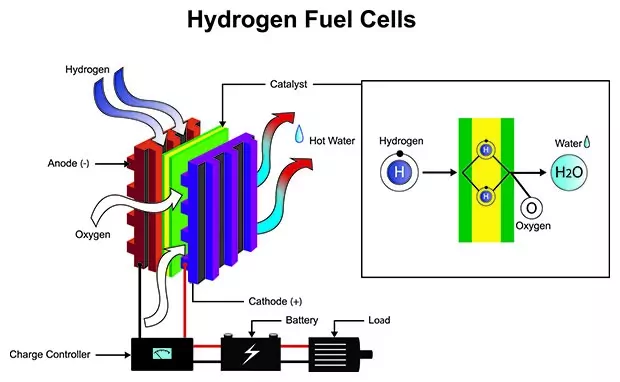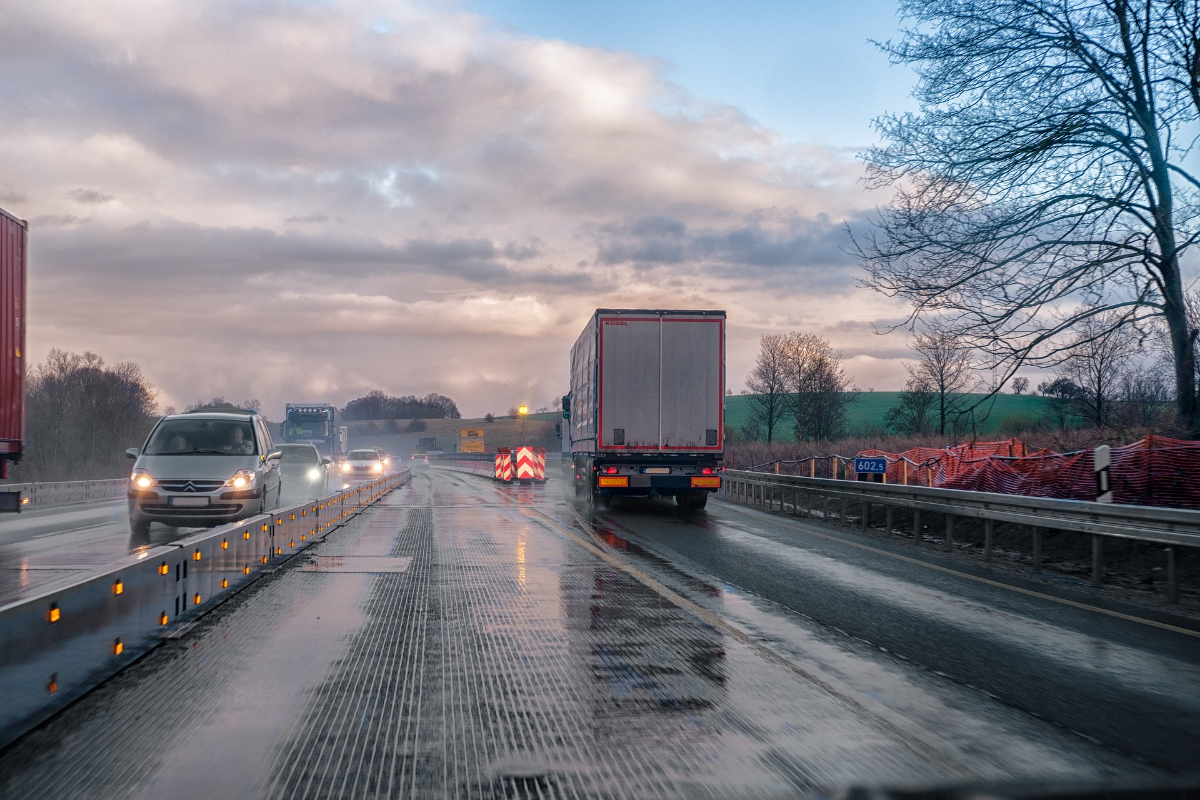Can I run a truck fleet on hydrogen? Have you considered the cost saving that your company can benefit from by converting your vehicle fleet to hydrogen fuel.
Is The Future Of Transportation Electric Or Hydrogen?
It is undeniable that, alongside renewable electricity, hydrogen fuel transportation will be a big part of our future. However, this vision of the future is still a little blurry.
Many things need to happen before hydrogen-powered vehicles become a realistic and viable option for the majority of people and businesses. We need to understand the total cost of the hydrogen produced on a global scale and how practical it will be, compared to petrol and diesel fuels. This pretty much sums up the conclusions of the North American Council for Freight Efficiency.
They were tasked with creating a guidance report on the possibility of seeing hydrogen fuel cell trucks on our roads in the near future. It also highlighted some of the more challenging areas, along with the many benefits, of attempting to make hydrogen-powered trucks that could compete with battery-powered vehicles as an alternative to fossil fuels.
Overall, the report outlined the current level of development hydrogen fuel technology has reached and does, in fact, state that we could use hydrogen power alongside lithium-ion batteries in our vehicles, the two systems complementing each other as a green hydrogen energy source.
Additionally, this marriage of battery and hydrogen technology will have a wide range of applications once all cost analysis, hydrogen prices, and technical development are complete. However, hydrogen fuel cell vehicles are still relatively new in the haulage industry and still needs to prove themselves as a reliable alternative to petrol and diesel trucks.
The Council for Freight Efficiency notes that haulage companies thinking of making the switch to hydrogen power will need to optimise their systems to make the most of this new technology and must learn to adapt their approach to fuel consumption if they stand a chance of having a successful transition.

Hydrogen and Long-haul Heavy Trucking
With climate change putting our future on this Earth in jeopardy, the need to decarbonise our transportation systems, whether domestic or international, is essential if we are to survive.
In most cases, the climate crisis has been met with the command to electrify everything and switch entirely to electrically powered vehicles and battery electric trucks. But things are never that easy, and this will only be a short-term solution at best.
Naturally, we all know that we will need to transition to greener energy one day - hopefully sooner rather than later - but the practical implications of this change are not widely appreciated.
Switching from internal combustion engines to electrical batteries for cars, haulage trucks, or container ships is a vast undertaking and incredibly complicated. There is far more to our green energy transition than a witty motto, and there needs to be a practical understanding of the processes involved.
On the whole, batteries will most likely prove to be a fantastic alternative for certain areas of trucking and haulage.
Companies such as Tesla are already developing vehicles with medium haulage ranges, somewhere between 300 to 500 miles.
However, many trucking routes stretch much farther than this, with international haulage routes constantly moving throughout the year. But this is where hydrogen fuel cell technology comes in.

The drivetrain in hydrogen fuel cell-powered trucks is essentially the same as the one you would find in electric motors. They both use batteries to store electrical energy, which is then used to power the vehicle.
However, while the electric truck relies on its battery solely as its fuel source, the hydrogen fuel cells provide a better alternative.
The hydrogen tanks fitted to these trucks means they have far more fuel than their traditional, battery-powered cousins. Hydrogen-powered trucks have a much longer range, using both the hydrogen fuel and any energy already stored in the battery.
They also require fewer refuelling stops, especially if the efficiency of the technology continues to improve. They are also much easier to refuel and do not take up as much of your cargo capacity as a giant electrical battery would.
Daimler is another company currently looking into hydrogen power technology. Their current drivetrain technology has an operation range of around 625 miles.
This means hydrogen technology can rival traditional diesel fuels so long as we can work out a way to decarbonise the hydrogen production pathway to create truly green fuel cell electric vehicles.
This is the final issue that these greener energies must face. Even with the electrical energy already used in battery-powered vehicles, the production pathways still rely heavily on burning fossil fuels, such as coal or natural gas. Reducing the harmful emissions generated through electrical production is the best way to reach our goal of sustainability and renewable energy.

Why hydrogen and not batteries?
Your standard 7-tonne heavy-duty trucks will have a maximum weight capacity of around 36 tonnes, including any fuel, the payload and its powertrain, with an average range of 1,000 miles.
The typical 9-tonne fuel tank and powertrain for internal combustion trucks leave you with just 27 tons of carrying capacity for your load.
This is one of the main reasons, besides decarbonisation, large batteries, though lighter than traditional drivetrains, are starting to be favoured over traditional petrol or diesel powertrains.
Battery electric vehicles, or BEVs, are widely available today and offer a great, zero-emission solution to all our haulage and transportation needs.
However, with a limited but growing level of electric vehicle infrastructure, battery-powered trucks might not be the best solution for the time being. Effective infrastructure is essential considering the thousands of miles travelled by long-distance transportation.
Other issues include the fuel-hungry nature of HGVs, which will naturally have a consequence for the wider clean electricity grid and limited infrastructure for the electricity needed.
Additionally, using rapid charging terminals for more efficient travel will negatively affect battery life. This is all besides the fact that drivers will have to sit around doing nothing while their trucks recharge, affecting labour forces and efficiency.
There are very few, if any, chargers available to accommodate HGVs or haulage vehicles.
While the UK government sees electrical vehicles as the silver bullet for our decarbonisation needs, the level of infrastructure needed will take many years to implement.
Our goal of net-zero carbon emissions by 2050 will require serious effort to create electric vehicle infrastructure at delivery locations across the country.

One other zero-carbon alternative that would be far easier to implement would be hydrogen fuel cell technology.
Rather than creating an entirely new refuelling infrastructure, we can use the existing National Grid systems to provide hydrogen fuel to trucks and delivery services where needed.
Hydrogen power also uses batteries, so it would be easy to modify existing electrical vehicles to create a faster refuelling, zero-emission energy source for our hydrogen vehicle needs.
Where are all the hydrogen trucks?
In recent years, a range of automotive companies have started channelling more and more funds into hydrogen truck technology in an effort to create a viable hydrogen-powered future for the haulage industry.
Most notable among these companies is Daimler and Hyundai - the latter's range of XCIENT trucks having recently surpassed a million kilometres on Switzerland's roads.
However, the old infrastructure issue is never far away, regardless of how advanced the technology is. But the infrastructure required for hydrogen refuelling is far simpler to implement.
You can refill a hydrogen-powered car in much the same way as you would a traditional diesel or petrol vehicle. Simply replacing diesel or petrol at the pumps with hydrogen shouldn't be too difficult.
This would allow for a complete overhaul of our fueling systems, providing the perfect zero-emission renewables to rival fossil fuels.
While not all battery charging terminals are suitable for all vehicles, hydrogen can fuel any car with a fuel cell to generate green energy. While hydrogen refuelling stations are relatively rare in the UK, they are increasing daily in places such as China, Japan, Germany and California.

If you are looking for hydrogen fuel production in the UK contact our specialist team today for information and advice.
.jpg)